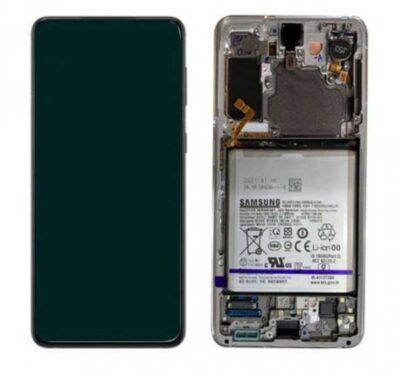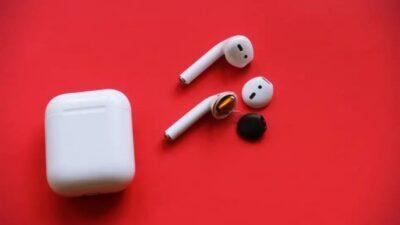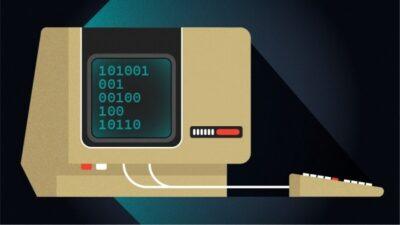One person like that
1 Shares

Gone are the days when we could easily take off the smartphone’s battery and replace it with a new one. You didn’t need a heat gun or a specialised tool to pop open the back of your phone, and you could easily do that with your fingernails. It seems like we could get the good old days back, thanks to a law passed by the European Union.
According to a new report, the European Parliament has changed a previous law that will force all gadgets, including smartphones, to have easily replaceable batteries. The MEP’s vote count ratio for this change stood at 587 to 9. The term ‘easily’ means that users should be able to replace the batteries without requiring special tools.
This means OEMs, from Apple to Google to Samsung, all have to make drastic changes to their smartphone designs (by 2027) to adhere to the new change that asks them to mount easily replaceable batteries on their devices.
Yes, my experience (a Nexus 6P) has been that it is usually the battery that wears out first, causing a perfectly good phone to become largely useless unless you want to risk the almighty pain of heat guns and levers to pry the phone apart. I did a battery change once, and it is just not something I really want to do again.
I know manufacturers are going to say it is about size (well I’ll gladly have a slightly thicker phone) or water resistance (I’m sure designers can come up with something again that includes rubber rings etc). I do get the feeling that manufacturers deliberately went the route of sealed phones so that we get pressed into buying new phones every two or three years. Now we have longer software updates, but batteries die after three years or so.
It is not just about the environment, but I’ve also seen that so many disposable products actually become far more expensive for users (for example cartridge razor blades).
See https://www.sammobile.com/news/samsung-needs-to-revamp-its-phone-design-to-implement-easily-replaceable-batteries/
#Blog, #batteries, #EU, #ewaste, #smartphones, #technology

The Swap Club believes you should trade your old tech in for a refurbished version. They even do the refurbishing for you: While they don’t reveal exactly how they do it, they told iFixit they rely on “specialized equipment and precision robotics” to make “Podswap” possible.
It’s a Swap Club cycle: The company sends you a refurbished pair of AirPods, then you send in yours within three to five days. The Swap Club then attempts to resuscitate those AirPods, performing the complicated task of replacing the batteries without breaking the earbuds altogether. They then clean both AirPods thoroughly, so you won’t be dealing with someone else’s earwax if that’s what you’re worried about.
You still need to pay the Swap Club for a refurbished pair of AirPods: $59.99 for a standard pair, or $49.99 for one with more visible wear and tear.
I suppose some cost is better than just throwing your old pair away. I wonder how much longer it will be legal to just keep selling “new only” AirPods? Battery sellers have often got to at least accept the old batteries for proper disposal / recycling. I did post a few months ago about one set of earphones which allowed battery swap outs, but apart from that, these devices really generate e-waste.
But with regard to Apple AirPods specifically… my first, and only pair, of AirPods I bought gave up the ghost just after 2 years old when the warranty had expired. I was pretty disgusted considering what they cost. After a while I did buy a cheap pair of wireless earphones, and I just realised, that many years later these cheap ones are still working. That now makes me super suspicious as to why the expensive AirPods just stopped working after 2 years!
So maybe what I’m realising now as my Aha moment, is rather buy cheaper 3rd party earphones. They’ll last longer!
But what we do know for sure is, Apple won’t change this situation unless legally forced to do so…
See https://lifehacker.com/this-company-saves-your-airpods-from-planned-obsolescen-1850302733
#Blog, #AirPods, #ewaste, #technology

The first part of the article deals with the ease that Linux can be installed on many old computers. These are computers that are made redundant often by Windows no longer getting updates (remembering that macOS still updates at least for 7, 8, or longer years after manufacture). So many older computers can be perfectly well repurposed and used for many more years using Linux, and still receive security patches and updates.
However, it is also important that hardware parts can be replaced especially hard drives, power supplies, etc. It’s an assumption that I also made that ATX motherboards are a standard fit, the PSU connectors on a motherboard are all generally a standard fit, and the same goes for SATA drive connectors, and so on. This often means you can even cannibalise parts form another broken computer you have on hand. Replacing and re-using parts is all important to reducing wastage and extending the use of what you have.
But this is the first time I’ve read that Dell uses some non-standard parts that you can’t easily replace (for example in the Dell Optiplex). When you can find parts (like power supplies and motherboards), they are not cheap. The reason is that those vendors create systems with non-standard power supplies and motherboards that only fit within their own non-standard cases. This is a strategy used to keep revenues up. If you can’t find these parts on the open market, you must go to the original manufacturer and pay inflated, if not exorbitant, prices. Eventually, one or more of those non-standard parts will fail, and you won’t be able to find a replacement at all, or at least not for a reasonable price. At that point, it makes sense to dispose of the old computer and purchase a new one.
So although up to now, I was quite pro-Dell in terms of their Linux support, I certainly will not touch buying any computer with non standard parts.
The best option for the planet is to keep computers running as long as possible.
See https://opensource.com/article/22/4/how-linux-saves-earth
#technology #environment #dell #standardisation #ewaste
#Blog, ##dell, ##environment, ##ewaste, ##linux, ##standardisation, ##technology
Designing devices for long-term care and reuse https://cheapskatesguide.org/articles/uncharitable.html by Dr. #AndyFarnell #environment #nature #technofascism #ewaste
● NEWS ● #ModernDiplomacy #Environment ☞ First Latin American #ewaste report published https://moderndiplomacy.eu/2022/01/30/first-latin-american-e-waste-report-published/
“My daughter asked me about why are we throwing away some bits of technology,” Dr. #AndyFarnell says. “This is my attempt to put into words for “ordinary” people what I tried to explain to a 6 year old.” http://techrights.org/2022/01/24/proprietary-is-pollution/ #gnu #linux #freesw #ewaste
My Year as a Digital Vegan — Part IX — Hard Reckonings: The Nine Circles of #EWaste • Techrights ⚓ http://techrights.org/2022/01/02/article-on-digital-rights-in-2021-part-9/ ䷉ #Techrights #GNU #Linux #FreeSW | ♾ Gemini address: gemini://gemini.techrights.org/2022/01/02/article-on-digital-rights-in-2021-part-9/
Hirsch said that although consumers can buy second-hand tech goods through online classifieds websites, they are often reluctant to do so – they can’t be sure they’re not buying a dud, and there are security concerns when strangers have to meet to conclude a deal.
It is hoped that TechMarkIT will bring credibility to the used/refurbished technology market in South Africa. The company checks all the products it sells for defects and other problems, and also cleans them thoroughly before making them available for sale. It has a 45-point checklist to ensure everything is in working order, including the battery (if the product has one). If the battery is showing signs of age, it is replaced before being sold. There’s a warranty of six months on goods sold, though this excludes battery-related problems.
Essentially, this would also help cut down on e-waste.
See Ex-Incredible Connection director in new tech retail venture
#technology #southafrica #secondhand #used #ewaste
Former Incredible Connection executive director David Hirsch has launched a new retail venture specialising in refurbished technology.
The Extended Producer Responsibility (EPR) regulations, created under section 18 (1) of the National Environmental Waste Management Act, affect all companies involved in the lighting, electrical and electronics industries, including those who sell computer and IT equipment, smartphones and renewable energy equipment. Battery importers or manufacturers and direct distributors, as well as the paper and packaging and single use product sectors, are also all impacted. The regulations were published in November 2020, with amendments made on 5 May 2021. They came into full force six months later, on 5 November 2021.
It’s a pity the focus appears to be mostly on registration requirements. What the article does not delve into is, what will happen differently, and what options do registered companies now have for disposal of e-waste. How does this affect us as consumers, i.e. can we still toss away e-waste, or can/must we dispose of it with any registered company.
See E-waste regulations come into force, with threat of fines and jail time
#technology #southafrica #ewaste #environment
New South African regulations dealing with electronic waste have come into full force, and companies that fail to comply face the threat of hefty fines or even jail time.
- - - - - -
WOW!! Talk aoout #greenwashing ... it's widely known #bitcoin is a source of #pollution ... no matter how you spin it https://www.nasdaq.com/articles/how-large-scale-bitcoin-mining-is-driving-clean-energy-innovation-2021-11-20 also a source of #ewaste
#Environment #Waste #Pollution #EWaste #RightToRepair #Recycling
Worthless #ewaste for useless gimmicks https://www.cnx-software.com/2021/08/01/smartbug-smart-switch-integrates-neatly-into-in-wall-sockets/ adding complexity for so little practical benefit
More #ewaste junk and gimmicks. Remember when our 'dumb' watches ran for YEARS without battery change? Some 'dumb' ones still work without charge at all (just hand movement). Headphones use cords; no batteries/charging needed. https://www.cnx-software.com/2021/07/29/nucurrent-nfc-charging-at-3w-data-rates-up-to-848-kb-s/